On February 25th, in Belarus, the first Unified Voting Day (UVD) declared by the current regime took place as part of the elections*. Videos posted on the YouTube platform in January-February 2024, which mentioned the election theme, were collected.
With the help of the social media monitoring platform BuzzSumo, 87 videos were collected. The total number of channels that posted videos mentioning electoral campaigns amounted to fourteen:
- CTVBY 24
- ONT TV Channel 24
- EuRadio 8
- ATN: news of Belarus and the world 8
- Country for Life 6
- Real Belarus 6
- BelTA News Agency 4
- No Guarantees 1
- SB TV 1
- MINSKNEWS 1
- BELSAT NEWS 1
- NEXTA Live 1
- Honestly OK 1
- Astrology – these are forecasts 1
These 87 videos collected just over 2 million views, of which more than 730,000 views were for videos about the elections in the Russian Federation on the NEXTA Live channel.
Videos that gathered the most views:
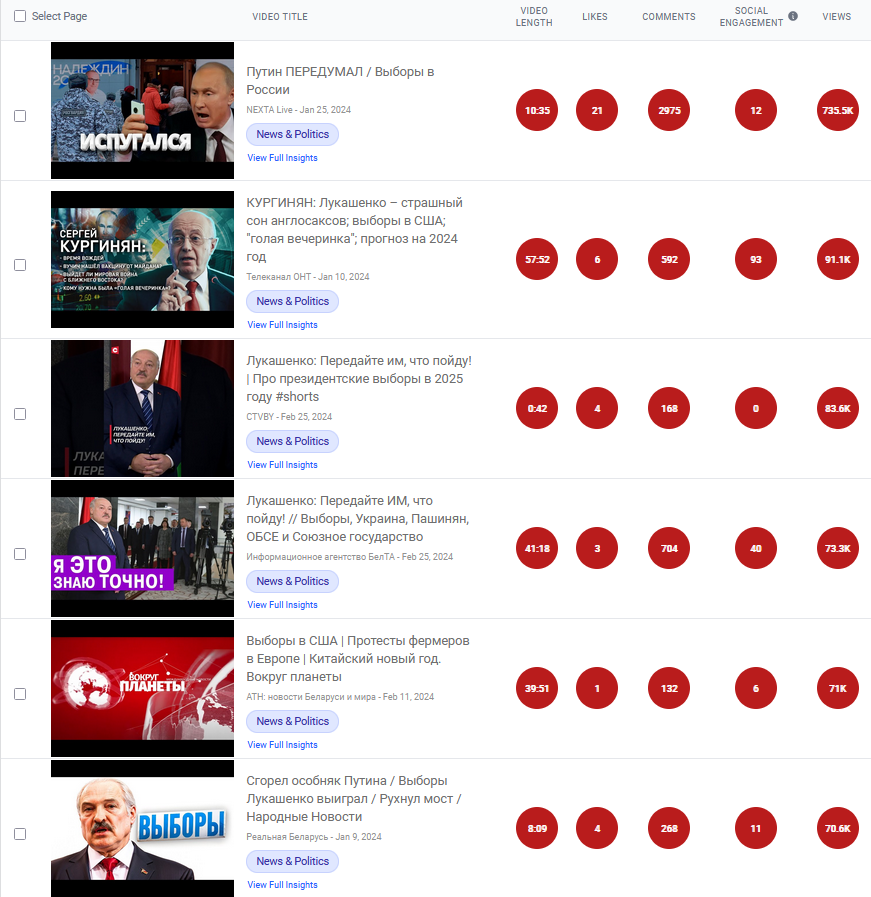
From this, it can be assumed that the collected videos on the electoral theme were not highly demanded by any target audience.
How the plots were distributed by electoral campaigns:
- Belarusian elections* — 64;
- US elections — 9;
- Presidential elections in Belarus in 2025 – 7;
- Elections to the Coordination Council (CC) — 4;
- Presidential elections in the Russian Federation — 2;
- Elections in Azerbaijan – 2;
- Elections in Germany – 1;
- Elections in Ukraine – 1
Of course, Belarusian YouTube channels with state ownership prepared voters and “covered” the elections*. Surprisingly, stories about the elections in the USA came in second place, overtaking loud statements by the leader of the current Belarusian regime about participating in the presidential elections in 2025 in Belarus. It creates the impression that, as in the case of the Polish parliamentary elections, with the change of the US president, the entire American policy towards Belarus will change.
Stories about the elections in the Coordination Council were prepared by two YouTube channels: EuRadio and Country for Life.
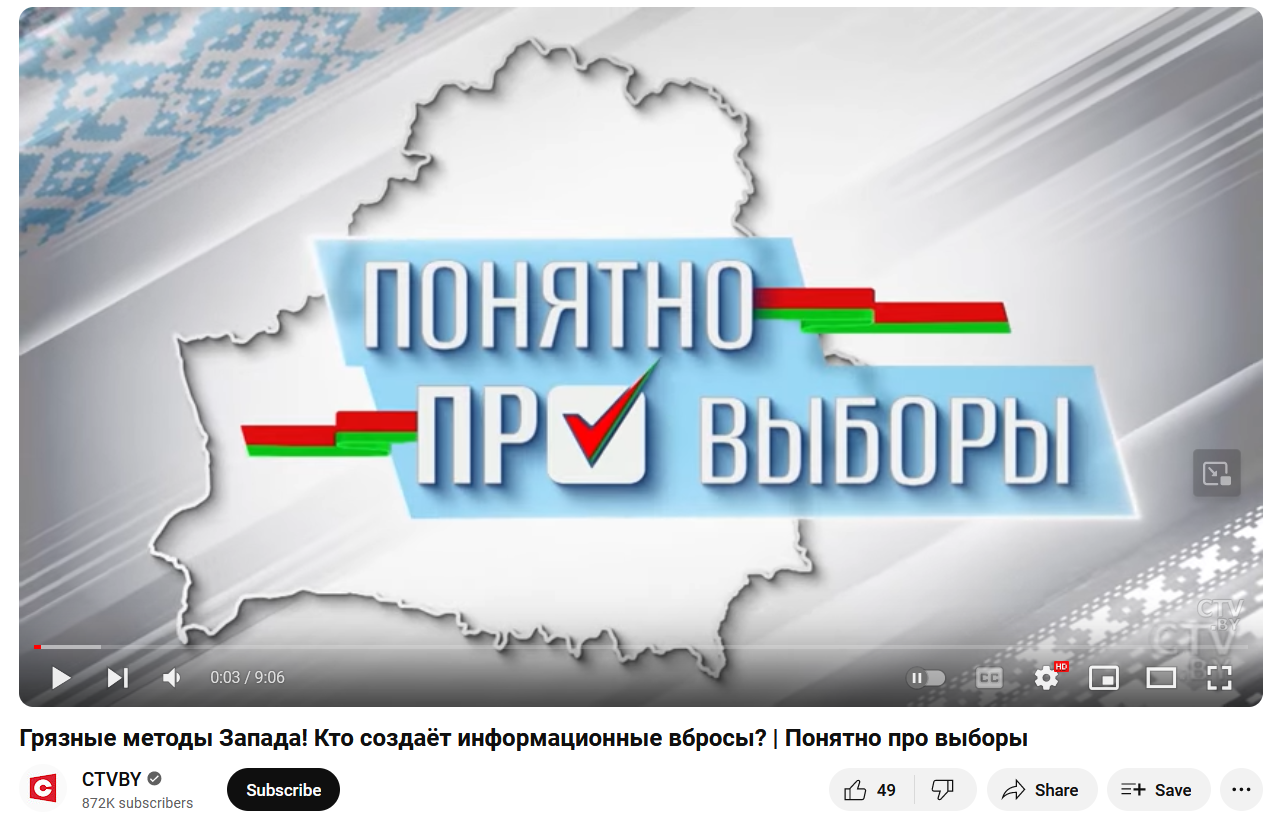
It should be noted that elections* were not attended by observers from the OSCE. For some reason, the Belarusian authorities made a lot of effort to discredit this international organization, of which Belarus is a member, and explaining (less than 4,000 views) to Belarusian voters why OSCE observers were not invited and that there are enough observers from the CIS countries, as well as marginal personalities from the European Union.
The CTVBY channel, whose YouTube channel has 872,000 subscribers, showed the program “Clearly about elections” with very clickbaity titles every Friday:

These videos gathered just over 10,000 views in total.
All of them contain elements of disinformation and manipulation of public opinion. Let’s analyze the issue from February 2, 2024, titled “The dirty methods of the West! Who creates informational dumps? | Clearly about elections”.

For example, this issue explains why there were no foreign constituencies in these elections* and there was a reference to the elections in Moldova and it was said:
Another resource used by Western political technologists for their purposes are foreign constituencies. In countries with significant labor migration – in Moldova, Armenia, the republics of Central Asia – a large portion of the working-age population is abroad. If these people work in the EU, they are easily manipulated: they are pro-Western oriented and will vote for a pro-Western candidate. According to this principle, Maia Sandu was elected in Moldova. She won in the foreign constituencies in the EU, which united about 20% of voters. In Moldova, this was enough for victory because the turnout inside the country was very low.
In this paragraph, in addition to direct disinformation about the attitudes of those voting who work in the countries of the European Union, which is not supported by any evidence, there are two distortions in numbers. Moldovans living abroad accounted for 15% of the total number of voters, not 20%. Secondly, a turnout of 45.68% in the first round and 52.76% cannot be called low.
Let’s analyze the entire content of the issue in terms of disinformation narratives:
- One-sided presentation of information: The text focuses exclusively on the negative influence of the West on the elections in Belarus, without attempting to provide a broader context or opinions from other sides. This creates a distorted view of the situation.
- Use of emotionally charged language: Phrases like “dirty methods of the West”, “attacks are starting” and “technologies of dirt” are designed to elicit an emotional response from the reader and form a negative attitude towards the West.
- Assertions without providing evidence: The text contains many statements about the actions of the West and the use of certain methods without specific examples or references to sources, making the information unverifiable.
- Demonization of the opponent: The West is presented as a single enemy seeking to destabilize Belarus and interfere in its internal affairs. This helps to create an image of an external aggressor.
- Conspiracy theories: Mentions of “color revolutions” and specific methods allegedly developed by foreign intelligence services for destabilization fall under classic conspiracy theories, whose purpose is to explain complex political processes with simple and unambiguously negative scenarios.
- Exaggeration and generalization: Phrases like “More than 60 countries do not practice organizing voting abroad” are used for generalization and to create the impression that Belarus’s position is the norm, and deviation from it is an exception, despite the diversity of electoral systems and practices in different countries.
- Mixing facts and opinions: In the text, factual information about the electoral campaign is mixed with the subjective opinions of experts and political scientists, which can mislead the reader about the objectivity of the presented information.
These signs are characteristic of disinformation campaigns, where the goal is not to inform the audience but to shape a certain opinion or view of events through manipulation of facts and emotional coloring.
Let’s try to describe several terms favored by Belarusian propagandists, which they often used during the elections* this year.
The use of the term “advanced democracies” in a negative context by Russian and Belarusian propaganda aims to achieve several goals:
- Discrediting Western countries: Employing the term “advanced democracies” negatively allows for the creation of an image of Western countries as ineffective and problematic, despite their high level of development and democratic traditions. This contributes to the perception that the Western model of democracy is not ideal and even dangerous, undermining trust in it.
- Legitimizing their own authority: By criticizing “advanced democracies,” propaganda seeks to strengthen the legitimacy of the current regimes in Russia and Belarus. Highlighting the problems of Western countries, they try to present their own governance as more preferable, emphasizing its stability and protection against “destabilizing” factors of democracy.
- Manipulating fears and insecurities: Using the term negatively is aimed at manipulating the fears and insecurities of the population regarding global changes, migration, economic crises, and social instability, often associated with “advanced democracies.” This fosters internal solidarity around the ruling regime.
- Creating double standards: Criticizing “advanced democracies” allows propaganda to highlight supposed double standards in international politics and human rights, where Western countries criticize Russia and Belarus for violations, while facing similar issues themselves. This is directed at weakening criticism of these countries by the international community.
- Forming an alternative model: Through criticizing “advanced democracies,” propaganda aims to promote an alternative governance model, based on sovereignty, national traditions, and values, in contrast to Western democracy. This is seen as a way to strengthen national identity and independence.
Thus, using the term “advanced democracies” in a negative connotation serves complex goals, including discrediting Western governance models, legitimizing their own regimes, manipulating public opinion, and forming a perception of their alternative state and society development model.
The use of alternative governance models, actively promoted by Russian and Belarusian propaganda as a counterweight to “advanced democracies,” often comes with insufficient consideration and protection of human rights. These models are usually built on the principles of strong state power, national traditions, and “special” paths of development, which can lead to the following human rights issues:
- Restricting freedom of speech and the press: In alternative models, where the focus is on stability and unity in the face of external and internal threats, criticism of the authority is often suppressed. This occurs through controlling or limiting the work of independent media and internet platforms, hindering the free exchange of information and opinions.
- Suppressing civil and political rights: Alternative models may entail restricting rights to peaceful assembly, association, and political activity under the guise of ensuring national security and public order. This leads to a reduction in space for civil society and political pluralism.
- Ignoring or violating international norms: In striving to emphasize their uniqueness and sovereignty, alternative models often deviate from internationally recognized standards and commitments in human rights, leading to non-compliance or disregard for international agreements.
- Centralizing power and restricting judicial independence: Many alternative models suggest strengthening executive power at the expense of limiting the independence of the judiciary and legislative branch of government. This decreases opportunities for protecting human rights and access to fair judicial proceedings.
- Discrimination and inequality: Emphasizing national traditions and values can sometimes justify discriminatory practices against minorities, women, LGBT+ communities, and other vulnerable groups, contradicting the principles of equality and non-discrimination.
Thus, alternative governance models, without sufficiently considering human rights, create risks for fundamental freedoms and democratic principles, undermining the stability and development of society based on universal human values.
The use of the term “methodology” by Belarusian propagandists in a negative connotation serves several purposes:
- Discrediting the opposition and independent media: Mentioning “methodologies” creates the impression that all actions and words of the authorities’ opponents are part of a well-planned and externally managed campaign. This undermines trust in opposition members and independent journalists, portraying them as puppets acting on someone else’s directive, rather than as true advocates of change or freedom of speech.
- Creating an image of an external enemy: Propaganda often relies on the idea of an external enemy trying to destabilize the country. “Methodologies” in this context serve as supposed evidence of foreign interference. This allows for uniting society in the face of an “external threat” and distracting attention from internal problems.
- Legitimizing repression: By claiming that the opposition uses “methodologies,” propagandists create a pretext for justifying harsh measures by the state. This gives the authorities “legal” grounds for persecuting, arresting, and repressing political opponents and activists under the guise of combating external influence.
- Manipulating public opinion: The tactic of discrediting through the mention of “methodologies” is aimed at manipulating public opinion. By creating the image of an opponent acting on someone else’s orders, propagandists seek to undermine trust in critics and present them in an unfavorable light.
- Semantic game: The word “methodology” in everyday language is associated with something formulaic, unoriginal. Using this term allows for diminishing the autonomy and sincerity of the opposition’s motives, presenting their actions as a repetition of pre-set instructions.
Thus, the negative connotation of the term “methodology” in Belarusian propaganda serves as a tool for discrediting the opposition, creating an image of an external enemy, justifying repression, and manipulating public opinion. This tactic strengthens the current regime and suppresses any manifestations of dissent or criticism.
It can be assumed that Belarusian propaganda will continue to prepare materials that will contain elements of disinformation about all elections in the European Union, the USA, and other democratic countries worldwide, to justify repression in Belarus, Russia, and other countries with an undeveloped culture of electoral cycles and real citizen participation in these processes.

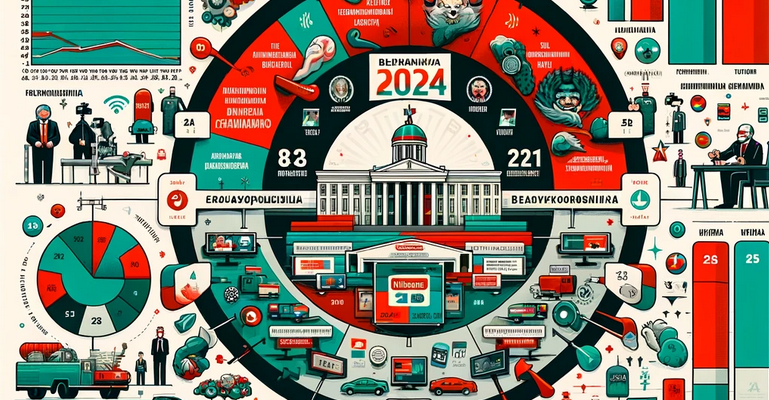
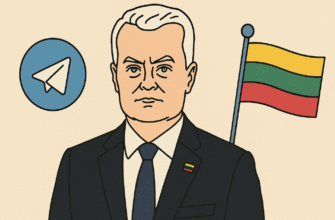

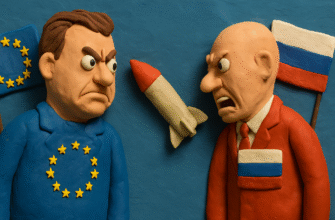

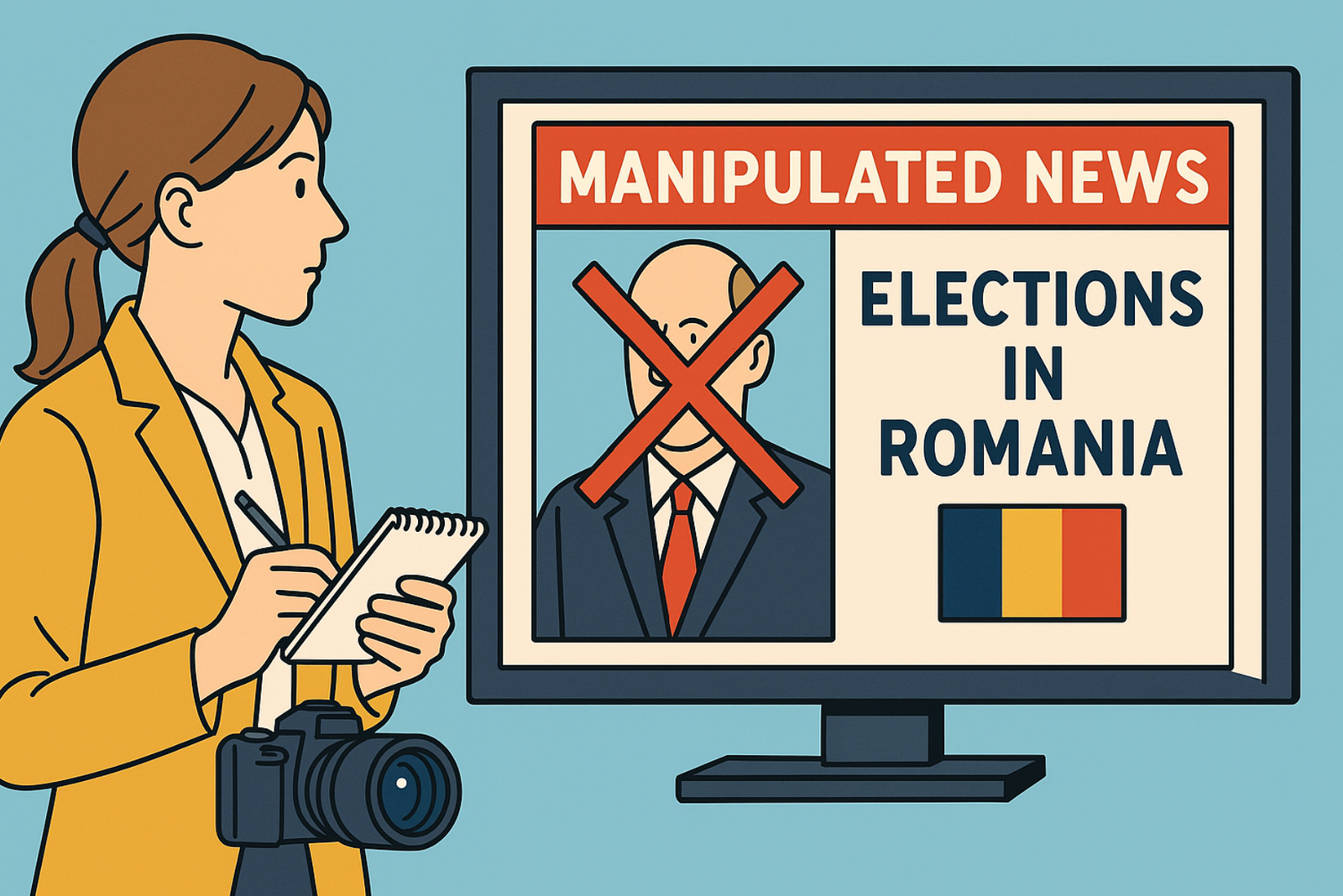



Comments are closed.